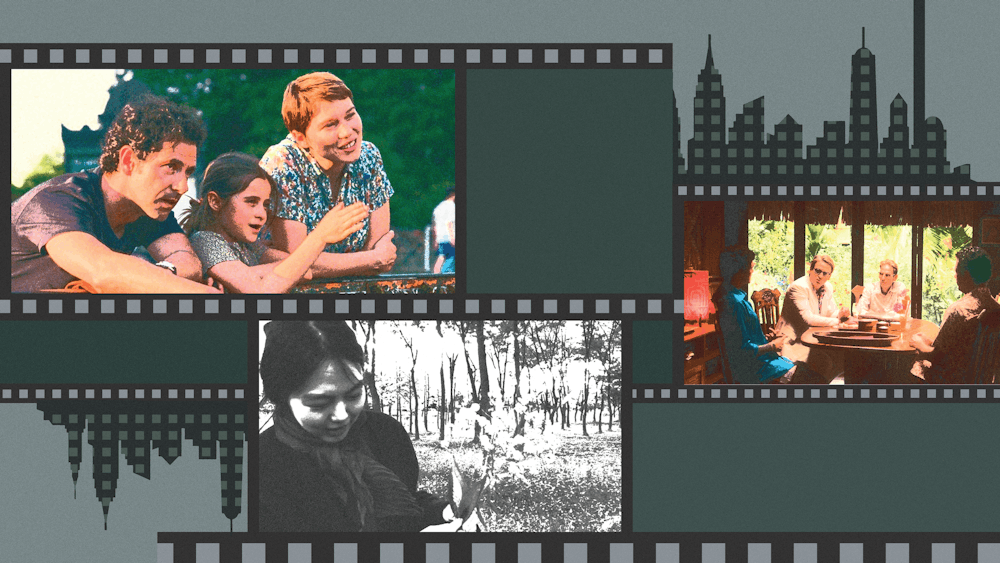On Oct. 16, the 60th New York Film Festival (NYFF), presented by Film at Lincoln Center, came to an end after a 17–day cinematic marathon. Featuring a wide range of quirky, subversive, and most importantly, inherently different films from across the world, the festival is a potent testament to the youth of cinematic art and its everlasting appeal, even after the severe effects from the COVID–19 pandemic. Since its creation in 1963, the NYFF is one of the longest–running and most prestigious non–competitive film festivals in the United States.
Without concession, this year's NYFF lineup was full of surprises, and to quote from Dennis Lim, the artistic director of NYFF, the program attests to “cinema’s limitless capacity for renewal.” After watching over ten films from this year’s programming, here are some personal favorites and absolute under–the–radar gems.
One Fine Morning, directed by Mia Hansen–Løve
Starring Léa Seydoux as Sandra, a professional translator and single mother, One Fine Morning is a poignant yet intimate exploration into modern love, while concurrently discussing aging and grief. Just like how a translator bridges two parties of different languages and cultural backgrounds, the film portrays Seydoux’s character standing at a crossroad in her life in Paris. In one storyline, she runs into one of her old friends who is now married and a father (Melvil Poupaud). She soon develops a relationship with him that proves to become troublesome. In another storyline, she strives to secure a decent nursing home for her father (Pascal Greggory) who suffers from a neurodegenerative disease. Though this may sound overtly ordinary, the film portrays human interactions in such an observant and humane manner with so many nuanced details, and only from there, we begin to witness a magnificent reflection of the grand scheme of life. Seydoux also offers a delicate portrayal of Sandra, a woman split between romantic desire and familial tragedy. Though with a relatively long runtime of 112 minutes, the film will flash right through your eyes in an instant.
Pacifiction, directed by Albert Serra
The original French title of the film, “Tourment sur les îles,” means the torment on the island, which perfectly captures the cinematic experience of watching this film on a big screen. With a runtime of nearly three hours, Pacifiction is extremely languid and slow–paced. Yet at the same time, it’s a mesmerizing psychological thriller that takes place on a post–colonial Polynesian island. The film follows De Roller (Benoît Magimel), a cunning French bureaucrat sent to the island with a secret mission of uncovering and pacifying a potential nuclear threat that looms over the exotic retreat. Instead of following a linear, straightforward narrative with ups and downs, the audience is thrown into a confusing world with drifting conversations; after watching the film for nearly three hours, one still might have no idea what they just witnessed. Instead of focusing on one or two main characters, the film audaciously charts an ecological, web–like system of the island with topics ranging from colonialism, sex, modern politics, nuclear deterrents, and warfare. While streaming services allow us to watch films with a tap of our fingers, Pacifiction is simply a cinematic experience one must not miss in front of a big screen. The audience is in for a ride with Serra to experience Pacifiction’s feverish despair and the incisive argument the film leaves behind.
The Novelist’s Film, directed by Hong Sang–soo
It is no exaggeration to claim that Hong Sang–soo is one of the most prolific auteurs of the world, as both of his new films this year, The Novelist’s Film and Walk Up, were chosen to be among the lineup of this year’s NYFF. Like most of his filmography, The Novelist’s Film is yet another playful and thought–provoking observation into the nuanced, mostly awkward human interactions one faces daily. This time, Hong takes the perspective of the novelist (Lee Hye–young) who is facing serious writer’s block. But after a chance encounter with a famous actress and former movie star (Kim Min–hee), they both connect with each other and quickly revitalize their creative impulses, leading them to make a film together. In some way, the film is full of self–references to not only Hong’s status as a filmmaker, but also his controversial marriage with the actress Kim Min–hee, who portrays an actress in this film. At the same time, The Novelist’s Film also offers an intriguing meta–commentary on the media specificities of novel, film, and theater. No words can do justice to the beautiful subtleness of Hong’s work, especially as The Novelist’s Film constitutes such an intimate, personal discovery of himself. On Dec. 1, there will be a special limited screening of the film at Philadelphia’s Lightbox Film Center.
“Cinema is devalued, demeaned, belittled from all sides, not necessarily the business side but certainly the art,” Martin Scorsese decisively said before the NYFF premiere of his new documentary, Personality Crisis: One Night Only. Scorsese honed in on how Hollywood has become an industry with a relentless pursuit for numbers and profits that debase cinema to a mere merchandise. Fortunately, it’s the plethora of different films one might see during a film festival like NYFF that continues to argue against the notion that equates cinema with profits, and testify to cinema’s unabated ingenuity.

